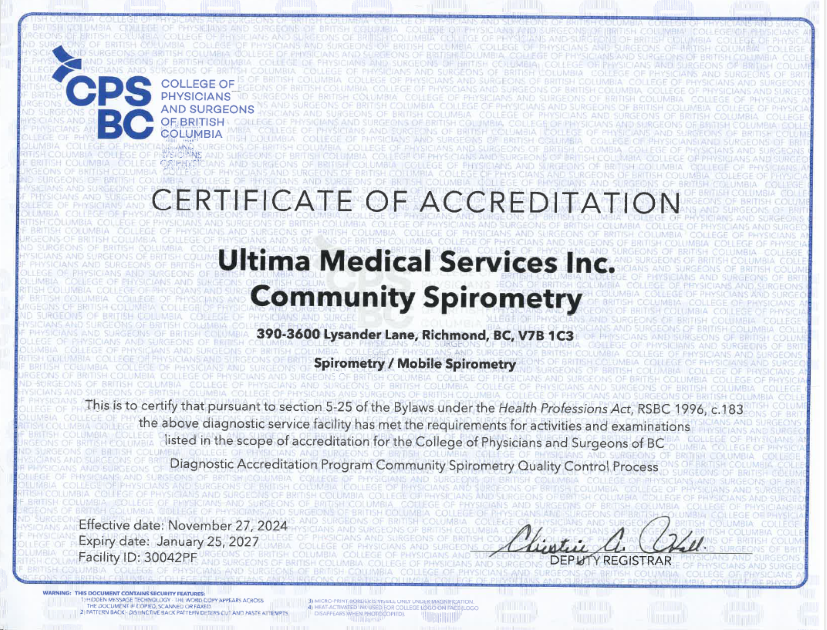A Pulmonary Function Spirometry Test measures how well your lungs work by analyzing how much air you inhale and exhale—and how quickly you can exhale. During the test, you’ll breathe into a device called a spirometer, which records the volume and rate of your airflow. These results help healthcare providers identify and monitor conditions such as asthma, COPD, and other respiratory disorders.
Why Choose Ultima Medical Services for Your Spirometry Test?
Ultima Medical Services is accredited by the BC College of Physicians & Surgeons Diagnostic Accreditation Program (DAP) to perform Pulmonary Function Spirometry tests in British Columbia. This accreditation is now required for all medical practitioners who conduct these tests, ensuring you receive a high-quality, professional assessment.
· Occupational Health Focus: We specialize in occupational health assessments, making our spirometry testing ideal for meeting workplace requirements.
· Experienced Team: Accredited Occupational Health Physicians interpret your results, and the procedure is carried out by trained professionals.
· Convenient Booking: For more information on scheduling and pricing, call 604-270-1370 or email ums@ultimamedical.com
Screening vs. Diagnostic Purposes
Please note that our spirometry test is performed as a screening tool for employment rather than a formal diagnostic service. For specific medical diagnoses, you should consult your primary healthcare provider.
Book Your Spirometry Test Today
Ensure you meet occupational health standards with a Pulmonary Function Spirometry Test from Ultima Medical Services. For further information or to schedule your appointment, please call 604-270-1370, email ums@ultimamedical.com, or reach out via our website.
Why Ultima Medical Services?
· Accredited by the BC College of Physicians & Surgeons DAP
· Dedicated to high-quality occupational health assessments
· Backed by an experienced team of medical professionals
Secure your spot and gain peace of mind by booking your spirometry test with Ultima Medical Services today.


